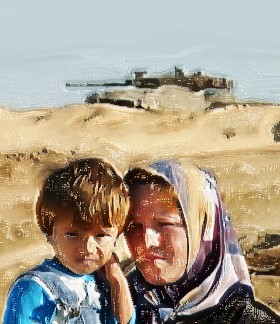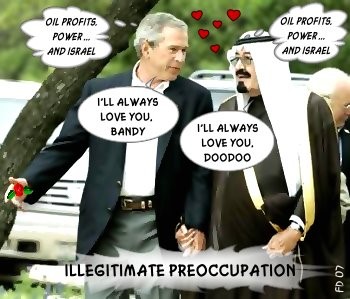What will be the repercussions from today’s revelations from the internationally respected Red Cross that
Israel is using its rights as an occupying power under international law “in order to further its own interests or those of its own population to the detriment of the population of the occupied territory”.
With the the separation barrier, the establishment of an outer ring of Jewish settlements beyond the expanded municipal boundaries, and the creation of a dense road network linking Israeli neighbourhoods and settlements in and outside Jerusalem, the report says, Israel is “reshaping the development of the Jerusalem metropolitan area” with “far-reaching humanitarian consequences”.
Given the stranglehold the Zionists have on western governments, media and public opinion, and although there are signs that the support Israhell has enjoyed for its reprehensible activities are waning, probably very little.
As usual, Israhelli officials obsfucate, deny culpability, refuse to admit the validity of international law in regard to return of territories seized via warfare, and thumb their noses at warranted criticism.
Israeli officials rejected the premise that Jerusalem was an occupied territory. “It is not. Israel annexed Jerusalem in 1967 and offered full citizenship at the time to all of Jerusalem’s residents. These are facts that cannot be ignored,” a spokesman for the Israeli Foreign Ministry, Mark Regev said.
Israel was “committed to a diverse and pluralistic Jerusalem, to improving the conditions of all the city’s inhabitants and to protecting their interests as part of our sovereign responsibility”. He added: “If any population in Jerusalem is thriving and growing, it is the Arab population.”
Demographic facts on the ground in Jerusalem are likely to inpinge on Zionist control soon. There are also positive signs that even United Stupids dignatories are disapproving of Israhell’s past crimes in the area.
Ambassadors from European Union states are to boycott celebrations of the 40th anniversary of Israel’s conquest of Arab East Jerusalem this week – in the opening shot of what promises to be a challenging summer for Israeli diplomacy.
The United States ambassador, Richard Jones, is also expected to join the Europeans in snubbing the celebrations .
What Israelis commemorate as the “reunification†of their historic Jewish capital is seen by most of the international community, not to mention the Palestinians, as a unilateral attempt to pre-empt a key issue in any peaceful solution. One-third of the city’s 725,000 residents are Palestinians, who have opted to reject offers of Israeli citizenship. Along with most other countries, the Europeans keep their embassies in Tel Aviv.
Hanan Ashrawi, a member of the Palestinian parliament, yesterday welcomed the European boycott as a blow for international law and peace. “The Israelis,†she said, “cannot get away with creating facts on the ground and then forcing everybody to fall in lineâ€.
[Thanks to Antony Lowenstein for the above two links.]
There can be no doubt that Israhell is willing to continue to run the gauntlet in order to cling to lands it has misappropriated, that further oppression in order to accomplish this is still the primary modus operandus of the Zionist apartheid state. Such intransigence, of course, will not bring about conditions to promote a peaceful outcome for the region. Peace would mean compromises. On past performances, Israhell is unlikely to give an inch – to do so might initiate a collapse of its whole unsavoury, colonialist edifice.






 Leaves from the past swirl about my shattered country
Leaves from the past swirl about my shattered country The ancient bus lurched its winding way to the leafy, well-to-do suburb by the sea. She walked to the plaza and sat on a bench. Amirah pretended to examine something in her satchel as she set the timer.
The ancient bus lurched its winding way to the leafy, well-to-do suburb by the sea. She walked to the plaza and sat on a bench. Amirah pretended to examine something in her satchel as she set the timer.